The content of the article
Immunity is the main protection of the body against the effects of harmful environmental factors. First of all, it prevents the development of infectious diseases when pathogenic pathogens enter. A decrease in immunity leads to the development of numerous diseases. Why is immunity reduced and how to increase it?
A bit about immunity
Immunity is a whole system that is responsible for maintaining the health of the body. There are several classifications of immunity:
Specificity:
- Congenital;
- Acquired.
According to the acquisition mechanism:
- Active;
- Passive.
By the method of obtaining:
- Natural;
- Artificial.
According to the basic immune unit:
- Cellular;
- Humoral.
Congenital immunity is also called non-specific. It has all the representatives of mankind and everyone is the same. These are those cells and mechanisms that respond in the same way to any pathogen, regardless of its antigenic properties. Antigen is alien genetic information, due to which cells distinguish between "friends" and "strangers".
Upon first contact with an unknown antigen, non-specific immunity is activated. The causative agent is destroyed, and the immune system records information about it and stores it for some time, sometimes all its life. With repeated contact, a specific immunity acts on the pathogen.
Acquired or specific immunity is an antibody. They are produced by plasmocytes under the influence of T-lymphocytes, which store information about the antigen. An antibody exactly matches one antigen and is capable of destroying only it.
Active is called immunity, which is acquired independently due to body contact with the antigen. Passive - this is the immunity that was obtained from the outside, that is, when antibodies enter the body with serum, and are not produced in it.
Natural immunity is active immunity after illness, innate immunity, and also transmitted from mother to child. Artificial is called active immunity obtained by vaccination and passive, obtained using serum.
Cellular immunity is represented by special cells. These include: T and B lymphocytes, natural killers, neutrophils, macrophages, basophils and eosinophils. All of them, except for B-lymphocytes, are involved in a non-specific immune response. B-lymphocytes are transformed under the influence of T-lymphocytes into plasmocytes and produce antibodies. The latter are part of humoral immunity. In addition, various biologically active substances belong to it: interferon, C-reactive protein, and others.
In addition, there are barrier mechanisms that protect us from foreign substances entering the body. These include: skin, mucous membranes, mucocellular apparatus of the respiratory tract, acidic environment of the stomach.
A pathological decrease in immunity is called immunodeficiency. Its increased activity is also dangerous, it can lead to autoimmune reactions. This is a condition where the immune response is aimed at destroying the body's own cells.
Why immunity decreases
A typical decrease in immunity, for example, seasonal from pathological, should be distinguished. Immunodeficiency occurs when the immune response is almost absent. More often, the matter does not go so far, and it is just slightly reduced. Why is this happening?
The following main causes of decreased immunity are distinguished:
- Hypovitaminosis;
- Unbalanced nutrition;
- Bad habits: substance abuse, drug addiction, alcoholism;
- Excessive physical exertion;
- Inadequate physical activity;
- Rare and short walks in the fresh air;
- Hypothermia;
- Exposure to radiation;
- Treatment with cytostatics and steroidal anti-inflammatory drugs;
- Allergic reactions that deplete the immune system.
All these factors in one way or another lead to changes in the body that cause a decrease in immunity. In addition, there are a number of diseases or pathological conditions that are manifested by immunodeficiency. These include:
- Acute leukemia;
- Lymphomas
- Toxic bone marrow damage;
- Liver disease with an outcome in cirrhosis;
- Malignant tumors;
- The defeat of the human immunodeficiency virus;
- Gastrointestinal diseases with maldigestion syndrome (not assimilation of food);
- Extensive injuries;
- Chronic diseases of internal organs;
- Parasitic infestations;
- Heavy operations;
- Congenital pathology of the immune system;
- Proteinuria, loss of protein in the urine.
When persistent symptoms of a decrease in immunity appear, it is necessary first of all to exclude the above conditions. In the absence of specific treatment, they can cause life-threatening immunodeficiency.
Symptoms of a decrease in immunity
Everyone knows that with this pathology, a person begins to get sick more often. But what does “more often” mean, what is the “norm” of diseases for an adult? In addition, it turns out that a respiratory infection is not the only manifestation of reduced immunity. Signs of this pathological condition are:
- Colds occurring more than 3-4 times a year.
- A long duration of a cold (normal normal SARS takes place in a week, a maximum of 10 days).
- Fungal infection of the skin and nails.
- Candidiasis (fungi of the genus Candida exist on the mucous membranes of a person constantly, but the disease occurs only with a decrease in immunity).
- Any form of tuberculosis (our body often encounters Koch's wand, but immunity can suppress it).
- Long healing of even small wounds.
- Frequent pustular skin diseases.
- Opportunistic infections (pneumocystis pneumonia, Kaposi’s sarcoma are reliable signs of immunodeficiency).
- The manifestation of herpes infection (the herpes simplex virus is contained in the body for a long time and makes itself felt with a decrease in immunity).
- The appearance of ulcers in the oral cavity.
- Chronic purulent sinusitis.
What to do if immunity is reduced
First you need to see a general practitioner or immunologist. He will conduct all necessary studies to establish the cause of this condition. In addition, the doctor will prescribe a treatment that helps increase immunity or eliminate the cause of its decline.
You can increase immunity using medications or alternative methods.
What medicinal substances can increase immunity
It is worth saying right away that assigning them to yourself is dangerous. Before use, consult a doctor. The following groups of drugs are able to increase immunity:
- Immunostimulants (Amiksin, Arbidol, Imudon, Immunal)
- Interferon preparations (Cycloferon, Viferon, Interferon)
- Thymus preparations (Timalin, Timusamine, Timogen)
- Multivitamins (Undevit, ABC, Complivit, Duovit)
Alternative methods of increasing immunity
There are several proven folk recipes that can increase immunity:
- Coniferous broth. Needles of any conifer will do. It is better to collect them away from roads, enterprises and residential buildings. Before preparing the drink, the needles must be thoroughly washed under running water. Pour one glass of needles with a liter of water and put on a slow fire. After boiling, cook for 15 minutes, then let it brew for at least half an hour. Drink a glass a day.
- Ginger tea. Ginger root must be washed and chopped.It can be brewed by yourself, pouring boiling water or mixed with tea in equal proportions. Drink like regular tea.
- Lemon drink. For one lemon, you need to take half a liter of hot water. Squeeze lemon juice in water, drink a glass. The drink is very acidic, but you can add sugar or squeeze lemon in the same proportions into tea.
- Tincture of Echinacea. You can not cook it yourself, but buy it in a pharmacy. Take 15 drops of tincture, diluting it in a glass of warm water, twice a day.
- Tincture of Eleutherococcus. Also sold in pharmacies in the finished form. 30 drops of tincture diluted in a glass of water, taken twice a day.
- Fish fat. It is also very beneficial for the immune system. At the moment, there is no need to force yourself to drink a disgusting medicine. In pharmacies, fairly cheap capsules of fish oil are sold, they are completely tasteless. They should be taken one every day.
General rules for strengthening immunity
For the immune system, lifestyle is a priority. Our habits, way of eating, daily routine - all this affects the immune system. To strengthen it, you must adhere to the following rules:
- Balanced diet. Particular attention should be paid to the intake of protein foods and vitamins. Fatty and fried foods, on the contrary, should be excluded from the diet.
- Physical activity. She must be moderate. Exhausting loads also reduce immunity, as well as their complete absence.
- Healthy sleep. It is necessary to sleep at least 7-8 hours a day. The bedroom should be warm, but well ventilated.
- Walks in the open air. Walking is necessary in any weather for at least half an hour a day.
- Hardening. This procedure should be carried out in a certain sequence, regularly and gradually. You should start with air baths, then wipe with a wet towel and only after - pouring. Goes to each next step is only after getting used to the previous one. You can use a contrast shower, but at the beginning the temperature difference should be minimal, it should also be increased gradually.
Thus, we can conclude that immunity is a whole system that is responsible for maintaining the health of the body. Various factors can cause its decline. You can increase immunity with the help of drugs or folk methods. To maintain it at a constant level, you should adhere to simple rules: eat right, exercise, observe the regime of the day.
Video: how to strengthen the immune system


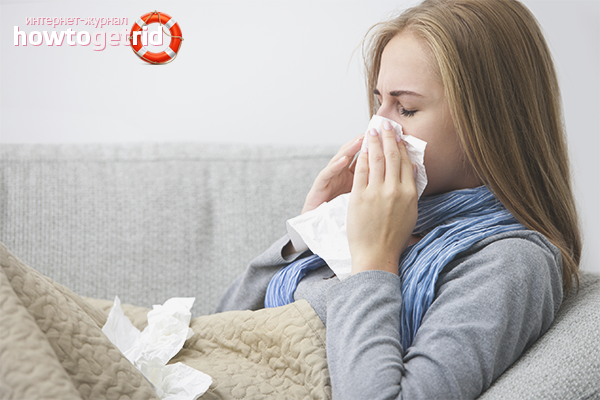
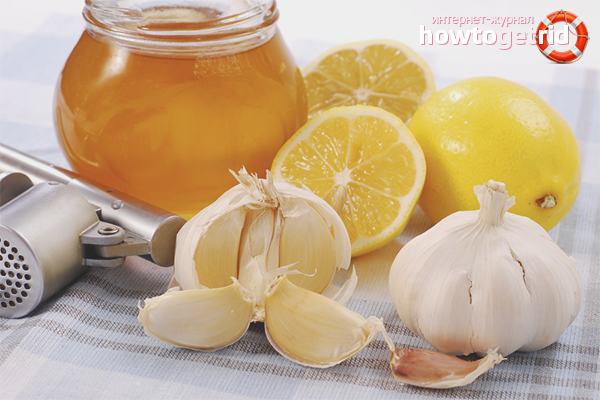
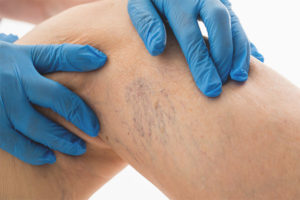
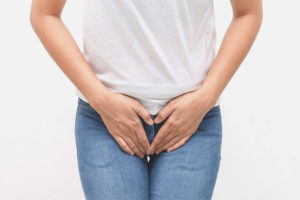
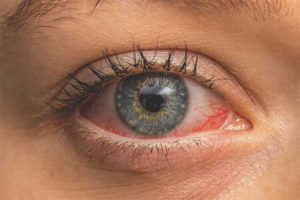


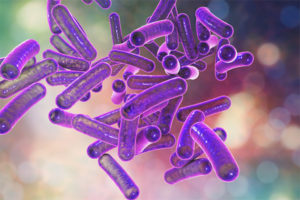
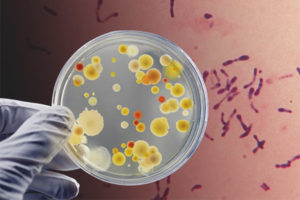

Submit